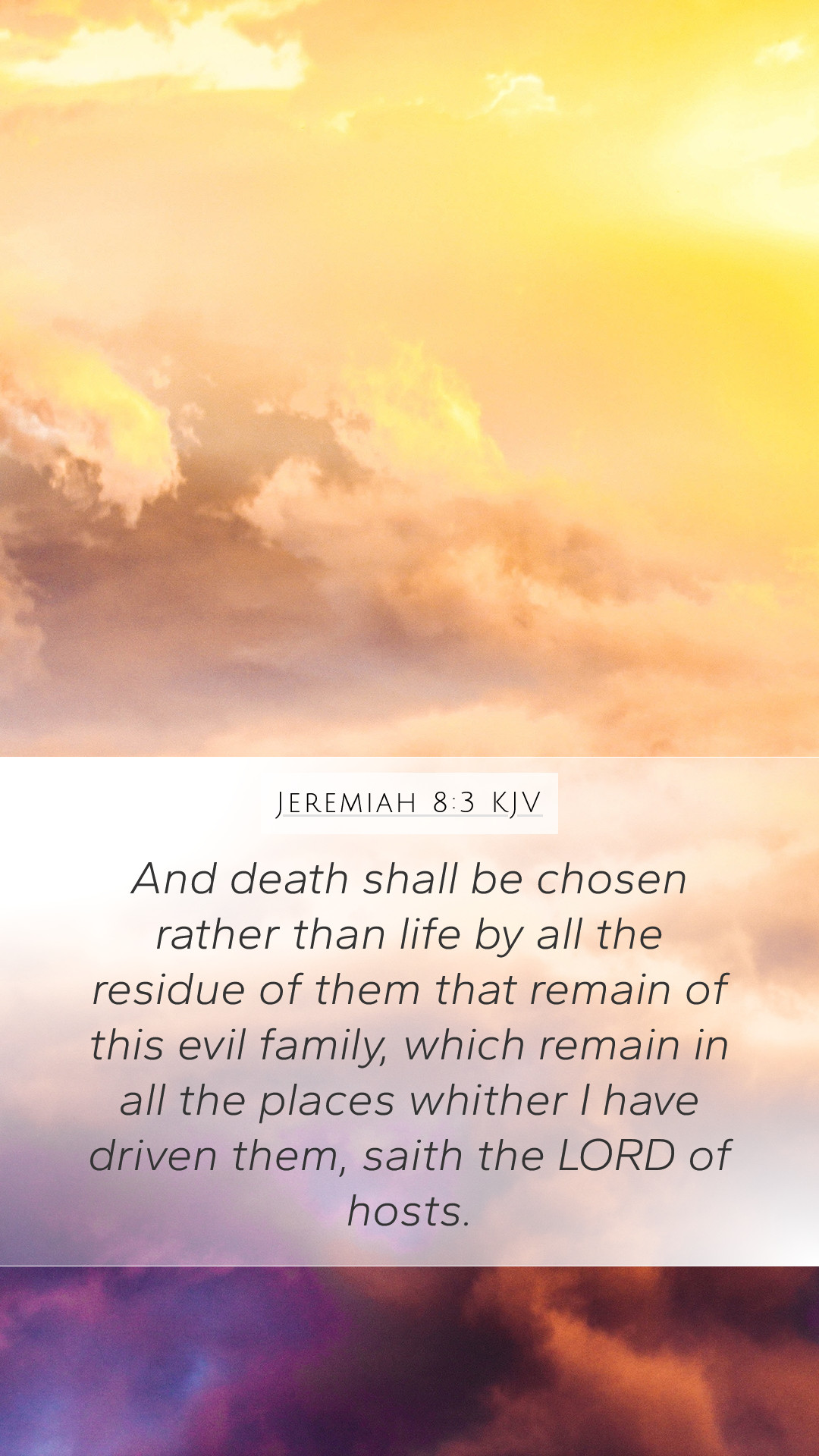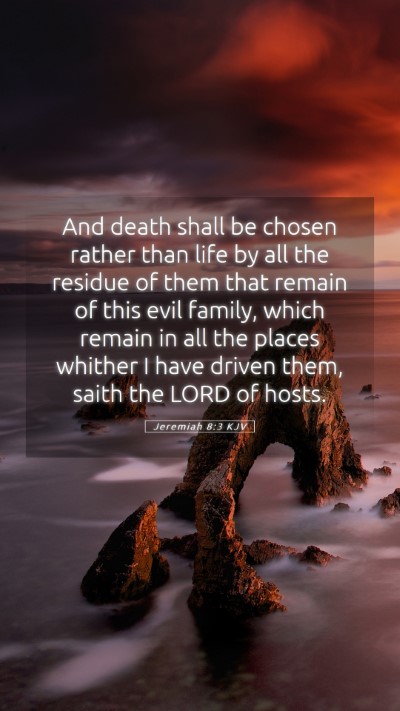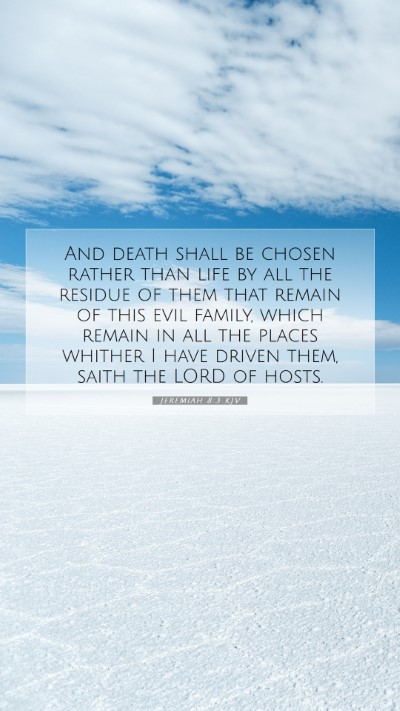Understanding Jeremiah 8:3
Verse: “And death shall be chosen rather than life by all the residue of them that remain of this evil family, which remain in all the places whither I have driven them, saith the LORD of hosts.” (Jeremiah 8:3)
This verse reflects a grim reality faced by the people of Judah during the time of the prophet Jeremiah. The statement highlights a choice between death and life, indicating the severity of their situation and the depths of their despair. Below, we explore the biblical exegesis and commentary on this verse.
Bible Verse Meanings and Insights
The meaning of this Bible verse can be understood through the following key points:
- Desperation and Despair: The people are so steeped in sin and judgment that they would prefer death over the life that God offers. This indicates a profound disconnection from God and His promises.
- The Evil Family: Referring to the remnant that remains, this term denotes a group that has largely turned away from righteousness. They represent Israel's spiritual decline.
- Divine Judgment: The phrase "saith the LORD of hosts" underscores that this is a declaration of divine authority, affirming that such calamity is a consequence of their covenant breaking and rebellion against God.
- Symbolism of Death vs. Life: In biblical terms, death often represents separation from God, while life signifies living in communion with Him. This choice illustrates the dire consequences of living apart from God's will.
Historical Context
Understanding Scripture requires awareness of the historical backdrop against which Jeremiah prophesized. The Kingdom of Judah was facing impending invasion and destruction due to its persistent infidelity to God. Jeremiah, as a prophet, conveyed God's dire warnings and the consequences of their choices.
Bible Verse Commentary from Public Domain Sources
Matthew Henry's Commentary
Matthew Henry emphasizes the notion that the people of Judah had turned so far from God that they could not even detect the seriousness of their predicament. They would opt for death, misconstruing it as a better alternative than the life that awaited them in obedience to God's laws. This commentary evokes the seriousness of rejecting divine guidance.
Albert Barnes' Notes
Albert Barnes reflects on the spiritual state of the people, pointing out that their choice signifies a complete failure to grasp God's mercy. He expounds that death is chosen due to the anguish of sin and the absence of hope in God's redemptive plan. Such despair leads them to a tragic fate, rooted in their rebellion.
Adam Clarke's Commentary
Adam Clarke draws attention to the metaphorical significance of death in this verse, articulating that those who reject God's covenantally promised life plunge into a shadow of hopelessness. Clarke emphasizes the prophetic warning of suffering consequences as a result of iniquity, calling attention to God’s patience towards a corrupt and wayward people.
Application of the Verse
In applying this verse to daily life, we are reminded of the choices we face regarding spiritual health and fidelity to God. It underscores the importance of repentance and understanding the consequences of turning away from God's will. The verse serves as a stern reminder of the ultimate consequences of disobedience and the need for spiritual revival.
Cross References
- Deuteronomy 30:19-20: A call to choose life and blessings;
- Jeremiah 9:21: A similar expression of sorrow over the fate of the people;
- Revelation 21:8: The fate of the unrepentant condemned to the second death.
Conclusion
Jeremiah 8:3 offers profound insights into human despair, divine judgment, and the weight of choices made in rebellion against God. By studying this verse and its commentaries, individuals can gain a deeper understanding of the potency of God's words and a clearer application of those lessons in their lives.


